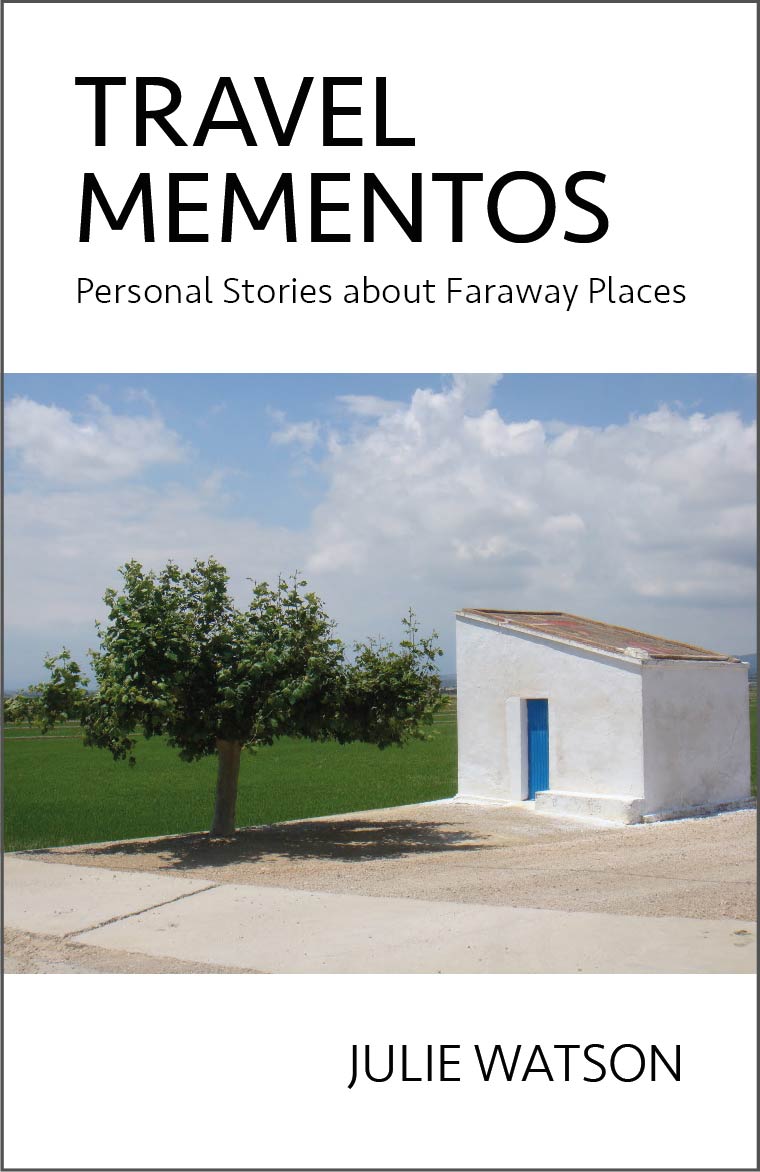
I know I’m not alone in starting out later in life as a writer. In my case, I only found the time and commitment to write in retirement, once my professional career had ended. But it’s actually never too late for writing as Mary Wesley (at 70), Annie Proulx (at 57), Raymond Chandler (at 51) and many other late starters have demonstrated.
So I’ve jumped on the bandwagon. Retirement offers all kinds of new opportunities, and for me, one of them was getting seriously stuck into creative writing.
There are some distinct advantages to entering the field as a senior. The most obvious one is that you will have is a lot of life experience to draw on. As the old adage goes, you should ‘write what you know about’. As an older writer, you will have racked up a fair bit of living and you’ll have stories, experiences and knowledge that can all prove useful for your writing, whatever genre you choose to write in.
My first book, Travel Mementos, is a collection of true travel experiences that have happened to me during a life of travelling for work and leisure. I started writing up these memoirs for my own pleasure but after sharing the stories with my local writers’ group and seeing their enthusiasm, I realised that there could be a wider audience for them. I made a literary leap of faith and took the next step of searching for a publisher.
This brings me to my second tip for anyone starting out on a writing career later in life - the benefits of joining a local writers group. Now that you have the time to write, you will need someone to read or listen to your work and provide constructive feedback. In a writers’ group you will receive relevant and useful feedback to help you revise and improve your early manuscripts. The support and encouragement of fellow writers who are also learning to hone their writing skills is invaluable. Belonging to a writers’ group also provides an incentive to finish a draft in time for the next meeting. Writer feedback can help you identify where your particular strengths lie. Similarly, listening to others read out their work can help develop your critical skills and make you more aware of different writing techniques to experiment with. We all borrow ideas from each other, after all.
Testing of the waters with your writing helps build your confidence when you’re starting out. I began entering writing competitions and won both a runner-up prize and online publication with my first attempt. This early success spurred me on. Learning to write to a specific theme or prompt for competitions can provide a challenge, give useful writing practice and expand your writing repertoire.
The last tip I would offer is to familiarise yourself with the publishing industry and how it works. This is a business that has changed significantly in recent years and an understanding of the differences between traditional, hybrid and self-publishing is important for any aspiring writer. E-book publication and audio books are also growing areas that you need to consider. Equally important is to learn about the role of social media in marketing your book. Having your own social media presence and/or personal website helps promote your work especially if you plan to write more than one book. If you publish traditionally or in partnership (hybrid), your publisher will provide a landing platform for your as an author on their website and take on most of the marketing work but if you choose the self-publishing route, the job of promoting your book will fall to you. Either way there is quite a lot of work to do on the marketing side.
So, in a nutshell, that is my advice for any budding senior writers. It’s not rocket science but there is a learning curve involved – it will be hard work but an enjoyable journey and there are plenty of helpful resources available on the Writers and Artists website.
Now I need to get back to my own writing again. I’m half-way through writing my second book. It’s non-fiction again but I’m branching out. This time it’s on something entirely different to travel, and I need to get the current chapter ready to read out to at my local writers’ group meeting on Zoom later this week!
Julie Watson is the author of Travel Mementos: Personal Stories about Faraway Places published by Beachy Books. She lives on the Isle of Wight and is now writing her second book.
You can purchase Travel Mementos via Beachy Books or Amazon and view Julie's author bio.
Great advice. There are all sorts of reasons why agents and publishers are paying growing attention to mature writers. For now, it's good to know that 'we are not alone'. Thank you, Julie.
Good luck with your own writing Valerie. I agree - a good writer's group can offer the same kind of support that you might expect from an agent or publisher.
Inspiring words Julie. As a mature person who's more recently taken the plunge into creative writing, I agree that sometimes it's been the support and positive feedback from my writers' group that's kept me going.